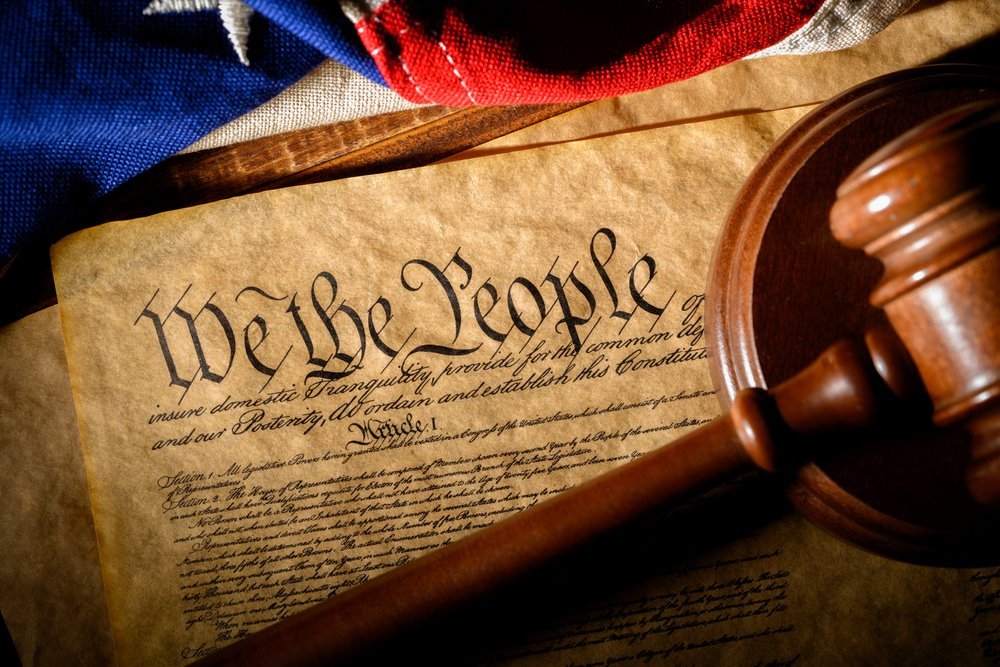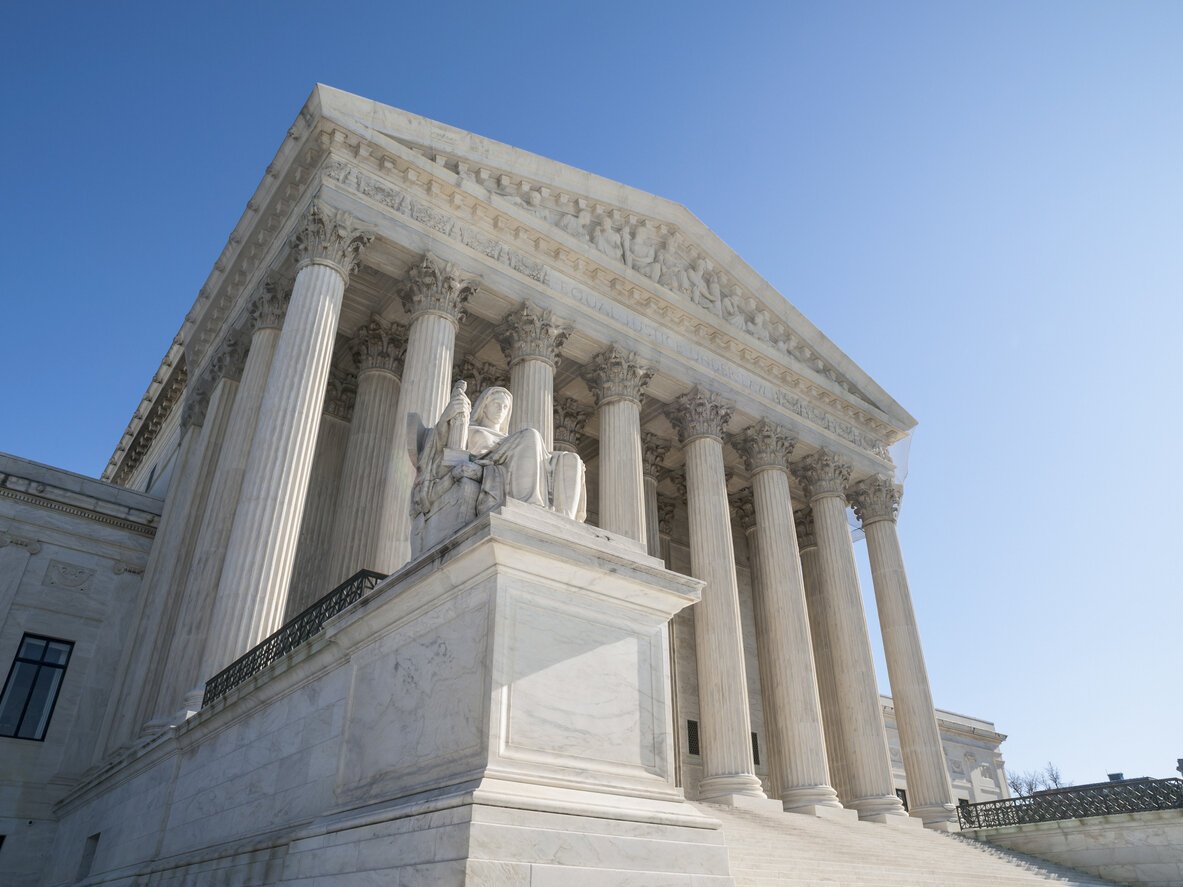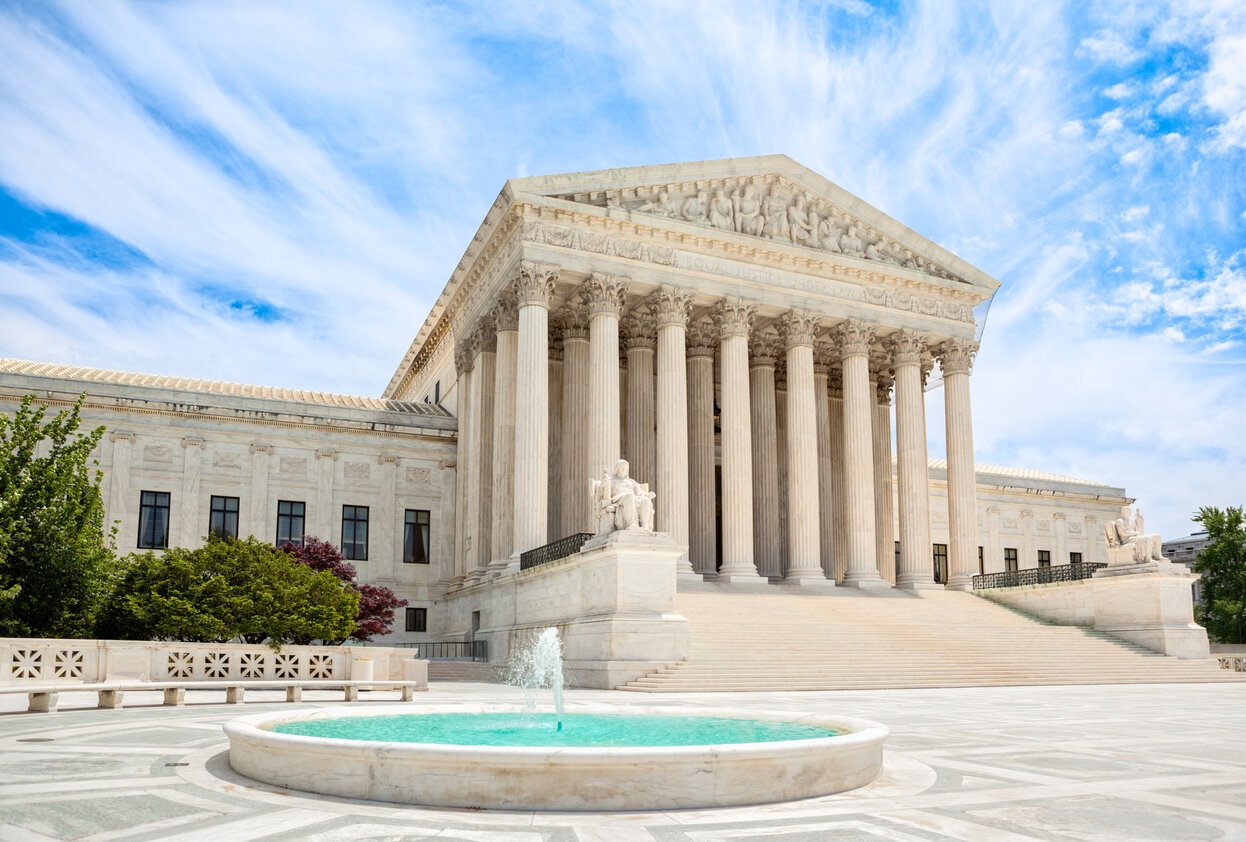Prohibit Acquitted Conduct From Enhancing Criminal Penalties, Petition Asks Supreme Court
A convicted criminal with support from politically conservative organizations has asked the U.S. Supreme Court to “put an end” to the judicial practice of enhancing criminal penalties based on jury-acquitted conduct.
Eleventh Circuit Reverses Itself on ‘Ultimate Discovery’ Standard of Proof
To establish the “ultimate discovery” exception to the exclusionary rule, the government must prove the exception by a “preponderance of the evidence,” the Eleventh Circuit recently held in an en banc decision. The full-court decision reversed forty-one years of Circuit precedent.
Supreme Court Asked to Consider Relevance of Officer Training, Subjective Knowledge to Qualified Immunity Defense
Whether law enforcement officers are entitled to qualified immunity when they knowingly violated their training by retaliating against a person for filming an arrest the officers made in public, was submitted this month for the U.S. Supreme Court’s consideration.
Prolonged Warrantless Monitoring From Pole Cameras Not A Fourth Amendment Violation, Seventh Circuit Decides
Using three pole cameras mounted on public property to continuously monitor the exterior of a defendant’s home for 18 months without a warrant is not an unreasonable search in violation of the Fourth Amendment, according to the Seventh Circuit.
Supreme Court Rejects “Per Se” Rule For Excessive Force Analysis
Law enforcement cannot place a resisting person in a prone position regardless of other factors, the Supreme Court held this week. “Such a per se rule would contravene the careful, context-specific analysis” the Court requires.
“Community Caretaking” Alone Does Not Justify Warrantless Home Entry, Supreme Court Holds
“Community caretaking” does not create a standalone doctrine that justifies warrantless searches and seizures in the home, a unanimous Supreme Court recently held.
Officer Who Used Suspect as ‘Human Shield’ Entitled to Qualified Immunity, Seventh Circuit Holds
An officer who held his gun to a suspect’s head, while using the suspect as a “human shield,” was entitled to qualified immunity because the officer’s conduct did not violate clearly established law, the Seventh Circuit recently held.
Supreme Court Considering Whether “Community Caretaking” Allows Warrantless Home Entry
The Supreme Court last week heard oral argument on whether the “community caretaking” exception allows law enforcement to enter a home for the purposes of the occupant’s health and safety.
Dismissing FTCA Claims for Lack of Jurisdiction Can Bar Related Bivens Claims, Supreme Court Rules
When a district court addresses the merits of a Federal Tort Claims Act claim in its decision dismissing that claim for failing to legally state a claim, the FTCA bars the plaintiffs from bringing any Bivens claim on the same subject matter, the Supreme Court held today.
Accessing Secure Zoom Room Is Evidence of Conspiracy, Third Circuit Affirms
On-camera participation in a password-protected Zoom videoconference may be relied upon as evidence of a conspiracy, the Third Circuit recently held. In that same decision, the Court held Zoom user logs are “classic business records” that may be introduced into evidence.
Agents Exposed to Personal Liability Under Religious Freedom Restoration Act, Supreme Court Rules
Government officials may be sued in their personal capacity for alleged violations of the Religious Freedom Restoration Act of 1993 (RFRA), the Supreme Court held in the case of Tanzin v. Tanvir, issued last week.
MSPB Must Determine Jurisdiction Over IRA Claims On Face Of Complainant’s Allegations
The MSPB cannot consider an agency’s interpretation or presentation of evidence to decide whether an individual-right-of-action presents a non-frivolous allegation of whistleblower reprisal, the Federal Circuit clarified in a recent holding.
Fifth Circuit: Briefly Examining Mailing Label Is Not Fourth Amendment ‘Seizure’
Temporarily removing a package from mail processing to examine its exterior does not constitute a Fourth Amendment seizure, the U.S. Court of Appeals for the Fifth Circuit recently held.
Supreme Court to Decide Constitutionality of Warrantless Entry in “Hot Pursuit” of Misdemeanor Suspect
The U.S. Supreme Court will decide whether pursuit of a person who a police officer has probable cause to believe has committed a misdemeanor allows the officer to enter a home without a warrant.
Officer Removed On Results Of Psychological Assessment Entitled On Appeal To Challenge Assessment’s Basis
Where an agency relies, directly or indirectly, on the results of a psychological assessment in justifying an employee’s removal, the agency must provide the employee with a meaningful opportunity to review and challenge the evidence underlying the assessment, the Federal Circuit recently held.
Federal Government May Retry Dismissed Oklahoma Convictions For Crimes On Creek Reservation
Thousands of Oklahoma convictions of Creek Nation members on reservation land may be dismissed following the U.S. Supreme Court’s recent decision in McGirt v. Oklahoma. In that case, the Supreme Court held that only the tribes and federal government may prosecute Native Americans living in most of Eastern Oklahoma for crimes committed there. This holding may be extended to dismiss potentially thousands of state convictions for retrial by either tribal governments or the U.S. Department of Justice.





















